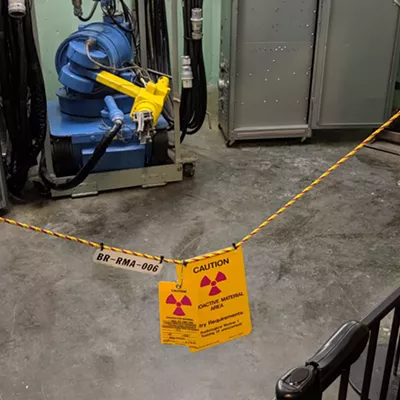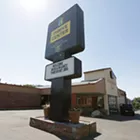Bart Logue, the current Spokane Police ombudsman, was recently unanimously approved by a civilian panel to stay on for another three years. After first getting appointed to the position in 2016, the former provost marshal in the U.S. Marines and a foreign diplomat has frequently butted heads with both the department and the police union over what the scope of his office's authorities are. The Inlander sat down with Logue to talk about the state of police oversight in Spokane and where he thinks it's headed.
This interview has been lightly edited for space and clarity.
INLANDER: How are you feeling after last week's Office of Police Ombudsman Commission vote on your contract renewal?
LOGUE: I'm glad that's over with. I felt like I was in a pretty good position going into it at least with the commission. But until the vote is taken you just never know. So it's nice to get the vote of confidence.
What do you see as the role of the Office of Police Ombudsman? What should people know about your work?
You talk to [a given] person and you're going to get a different answer on what it is that we actually do — from political candidates all the way on down. We're a conduit for the public in order to bring concerns to the Police Department. We're supposed to ensure the professionalism and accountability of the Spokane Police Department by, No. 1, overseeing Internal Affairs investigations and, No. 2, investigating anything we deem necessary.
And when it comes to an advocacy role, we're not really even that. We are an advocate to ensure that the citizens' concerns are addressed. But we don't try to say "these are the most important facts." The facts are facts.
What do you see as the biggest impediments to police oversight in Spokane?
In Bart Logue's perfect world, there would be no question as to what our authorities are, what we're allowed to do, and what we're not. Can you imagine being brought in to do a job and not being given the basic program to do your job and yet told to do it anyway? What is that? We have to get past those things. If I'm out of town or I'm on vacation, we don't have a mechanism in this ordinance for oversight to continue. It just stops until I come back. We can still bring in complaints, but the oversight of investigations is stalled.
The problem is that right now we have [laws] that say we can do some things and then, for whatever reason, the Police Department has been saying, "That's not what we meant." When you can get bogged down and stifled by that kind of stuff, it's hard to feel like you're moving forward at all. We're not asking for unreasonable things. We're only asking for things that we think are inherent.
What do you hope your office can eventually address in an oversight role?
I think we can do more meaningful analysis. [We] should partner with some risk management folks here in the city and see what has the city paid out, liability-wise, regarding the Police Department. It might be car crashes, it might be canine bites. But, if over the last 10 years, we've paid out half of our money [for] claims against the Police Department, that's absolutely where I need to focus some effort. That's the role of an ombudsman: to go in and look at things. It's not really to look at the minutiae. ♦





















